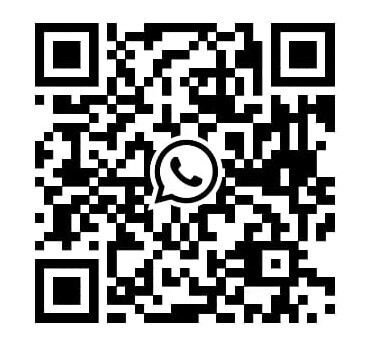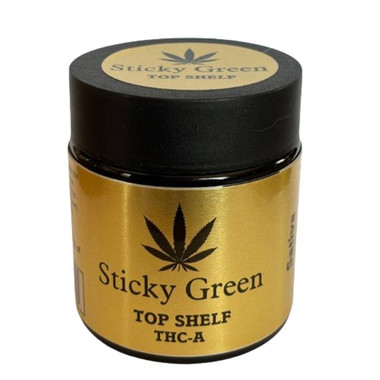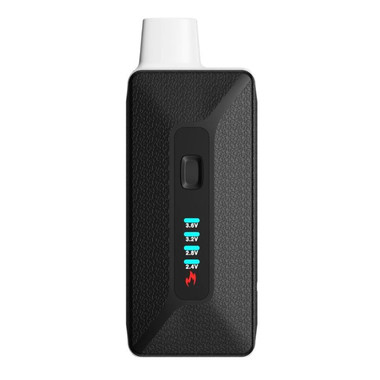Anti Counterfeit in The Vape Industry: How Vaping is Handling Fake Products
Estimated 0 min read
On January 19, 2021, in the Chicago O'Hare Airport, 50,000 unapproved dragster Mountain Vape Pens were seized by U.S. Customs and Border Protection (CBP) officers. The vape pens were mislabeled as lithium-ion batteries and violated the Federal Food, Drug, and Cosmetic Act (FD&C Act), which considered them misbranded goods from an unauthorized agent.
The shipment originated from Hong Kong and was headed to a residence in Alexandria, Kentucky before the CBP interfered. The officers believed the goods were intentionally mislabeled and meant for sale without authorization. The pens had an MSRP value of about $450,000.
Shane Campbell, the Area Port Director for Chicago, said in a statement, "our officers are dedicated to identifying and intercepting these types of shipments that could potentially harm our communities." "Customs and Border Protection's trade enforcement mission places a significant emphasis on intercepting illicit products that could harm American consumers, and we will continue to work with our consumer safety partners to identify and seize unsafe and illicit goods."
This incident is not isolated. Fake and counterfeit vape devices are continually being sold around the world, which only serves to diminish vaping's reputation. Thankfully, some measures are being taken in the vaping industry to decrease the market's influx of fakes.
Table of Contents
- What is Being Done to Fight Illegal Vaping Products
- Use of Blockchain Technology
- Impact on the Vaping Industry
- Conclusion
What is Being Done to Fight Illegal Vaping Products
Earlier this year, on January 4, Bidi Vapor, LLC, a manufacturer of premium disposable vape pens, was granted a temporary restraining order against 24 defendants from China, accused of selling fake Bidi products through the wholesale website DHgate.com.
That lawsuit is just one of the actions being taken by Bidi Vapor to combat counterfeits in the global market. Their anti-counterfeit program has also begun rolling out products with anti-fake stickers with something they call a 3-level authenticity check.
The authenticity check is a complex and secure way to ensure that their products can't be replicated and require that they perform three actions on their sticker before verifying if their product is an authentic Bidi Stick.
The process begins by pouring a couple of drops of water on the sticker, which should not damage any stickers labeling if it's an original and authentic Bidi product. Using a marker, customers write over the sticker, which should trigger the anti-fake sticker's Bidi logo to turn black. Next, if the anti-fake sticker has been put through the first two trials, the user will peel off the stick to reveal a QR Code and an authentication code that they can then verify. Even after performing all these trials, if the authentication code is invalid, the customer will know he has bought a fake.
Niraj Patel, the President of Bidi Vapor, said in a statement about his anti-counterfeit program that "The manufacture and sale of counterfeit goods hurt all responsible suppliers of quality products." "It's a shame that independent manufacturers like Bidi Vapor have to shoulder the burden of pursuing wholesalers and retailers dealing in these illegal products, but our goal is to provide high-quality, electronic nicotine-delivery systems (ENDS) to adult consumers who are 21 and older.
There are also other authenticity methods being floated around in the vaping market, such as blockchain technology, which is already used with luxury goods and food products. With this technology, e-liquid and vaping manufacturers could technically trace the development back to its origin and validate it by tracing it through every step in the supply chain.
Use of Blockchain Technology
Although many people think about Bitcoin when they talk about blockchain, this technology has many other uses, including the ability to authenticate physical objects. There are many reasons why blockchain is ideal for this, but one of the most important ones is that there is no centralized database that stores the information that helps authenticate products.
Although we already have technology that uses bar codes that can trace and track items from manufacturing directly to the client, these codes can be hacked and changed if, for example, hackers were to gain access to the database where the products’ bar codes were stored.
However, since blockchain technology does not use a centralized system, a decentralized peer-to-peer database exists, where several people have access to the codes. Various databases are existing simultaneously if one of the codes were to be changed or added. The hackers would also need to change all the databases of all the parties involved. Since this is close to impossible, this ensures that the codes are tamper-proof.
Impact on the Vaping Industry
The impact of using stricter methods of authentication could help deter the black market from growing; it could make the FDA stop breathing down the backs of manufacturers and would ultimately lead to fewer customer injuries by counterfeit and illegal products.
Although the black market is rampant, efforts to authenticate products could prevent another devastating health epidemic like the so-called EVALI outbreak that only served to smear the vaping industry’s image. The CDC has now acknowledged counterfeit THC vaping products caused it.
Conclusion
By adopting stricter authentication methods, the industry can salvage its image in the public’s eyes and become what vapers everywhere know vaping is, a legitimate way to quit tobacco and live smoke-free. The industry’s commitment to battling counterfeit and illegal products, like the ones Bidi Vapor is taking, could spell a brighter future for the vaping industry.







